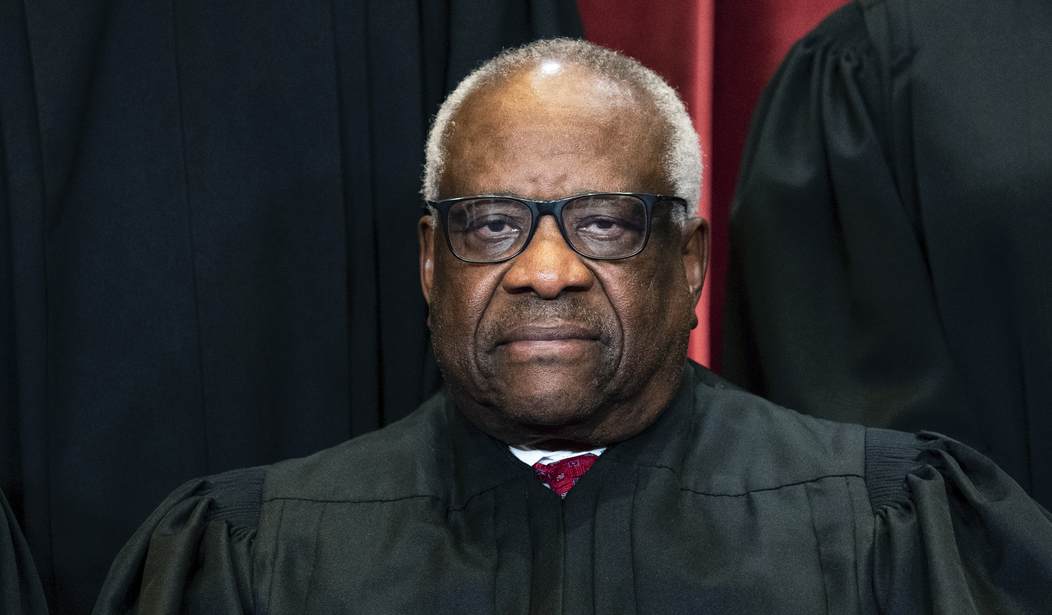During Supreme Court oral arguments in the Trump v. CASA, Washington, and New Jersey cases, Justice Clarence Thomas delivered a surgical takedown of the legal rationale for nationwide injunctions, using just one line.
The case centers around whether lower courts can issue sweeping injunctions that block federal policies nationwide, even when only a handful of plaintiffs are before the court. Representing the United States, Solicitor General D. John Sauer argued that such broad orders violate established legal norms and Supreme Court precedent.
“We believe that the best reading of that is what you said in Trump against Hawaii, which is that Wirtz in 1963 was really the first universal injunction,” Sauer told the Court. “There’s a dispute about Perkins against Lukens Oil going back to 1940. And of course, we point to the Court’s opinion that reversed that universal injunction issued by the D.C. Circuit and said it’s profoundly wrong.”
Sauer continued, listing key precedents that have rejected expansive injunctive relief. “If you look at the cases that either party cite, you see a common theme. The cases that we cite — like National Treasury Employees Union, Perkins, Frothingham, and Massachusetts v. Mellon, going back to Scott v. Donald — in all of those, those are cases where the Court considered and addressed the sort of universal — well, in that case, statewide — provision of injunctive relief.”
Recommended: A Year Ago Today Was the Beginning of the End for Joe Biden
He emphasized, “When the Court has considered and addressed this, it has consistently said, ‘You have to limit the remedy to the plaintiffs appearing in court and complaining of that remedy.’”
That’s when Justice Thomas stepped in and cut through the legal weeds with a devastatingly simple observation.
“So we survived until the 1960s without universal injunction?” he asked.
Sauer didn’t hesitate: “That’s exactly correct. And in fact, those were very limited, very rare, even in the 1960s.”
He went on to explain that nationwide injunctions didn’t truly explode until 2007. “In our cert petition in Summers v. Rhode Island Institute, we pointed out that the Ninth Circuit had started doing this in a whole bunch of cases involving environmental claims.”
Thomas’s concise question — “So we survived until the 1960s without universal injunction?” — hit the heart of the issue. With that simple question, he challenged the idea that such drastic judicial remedies were historically essential, even during one of the most tumultuous and morally urgent periods in American history: the civil rights era, a time when federal courts began issuing broader remedies to dismantle Jim Crow laws and enforce desegregation.
In other words, if the courts managed to confront segregation, enforce Brown v. Board of Education, and make tremendous progress for civil rights without needing to impose blanket nationwide injunctions, then why are they supposedly necessary today over what amounts to policy disputes?
Important point at the Supreme Court today☝️
— Tyler O'Neil (@Tyler2ONeil) May 15, 2025
"So, we survived until the 1960s without universal injunctions?" Justice Clarence Thomas asks.
"Correct. Those were rare in the 1960s," John Sauer responds. "It exploded in 2007."https://t.co/QhpJ0kFFg2 pic.twitter.com/Izh1DLyUFJ
In just one sentence, Thomas accomplished what pages of legal briefs failed to do. He exposed the historical and constitutional weakness of the left’s favorite legal tactic.
Thomas's brilliant takedown reveals how progressives weaponized the courts after failing legislatively. Don't miss our uncensored coverage of the judicial battles shaping America's future. Join PJ Media VIP today for exclusive analysis and commentary the mainstream media won't provide. Use code FIGHT for 60% off and stand with us against judicial activism!










Join the conversation as a VIP Member